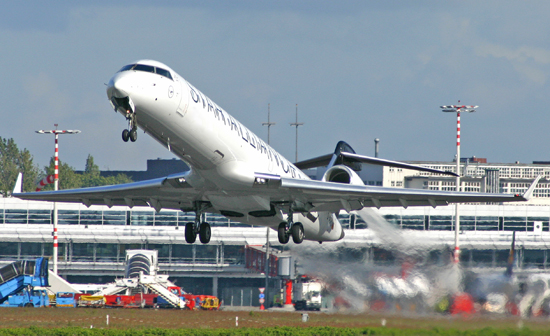Postponing ETS Implementation Relieves Airlines

Air transport associations, authorities, organisations and airlines have been strongly positioned against the Emissions Trading Scheme (ETS) as it would be a cost burden to airlines, calculated to add 1% to an average return fare, and would decrease up to 1% air traffic volumes.
Intensifying price competition, that does not allow carriers to pass on the cost to passenger, high oil prices at above $100/barrel, marginal yearly industry net profits (forecasted by IATA to reach 4bn$), that can easily turn into losses by the end of the year with unexpected events, such as Sandy that caused to airlines around 100Million$ losses, and profit margins that have rarely exceeded 3%, make airlines extremely sensitive to any decision that can hurt their bottom line.
says Frost & Sullivan Consultant, Lida Mantzavinou.
The European Commission postpones implementation of the ETS until 2013, when the International Civil Aviation Organization (ICAO) will take control of the issue during its assembly.
That is a relief to European airline groups, such as IAG, Lufthansa and Air France/KLM, which are currently under strict restructuring and cost reduction programs, expected to reduce staff in total of 13.000 by 2014, generate €450Million (IAG) and €200Million (Lufthansa) savings by 2015 and reduce net debt by €4bn (Air France/KLM) by 2015, while leveraging on their low cost subsidiaries: Iberia Express and potentially Vueling for IAG, Germanwings for Lufthansa and Transavia for Air France/KLM.
continues Ms Mantzavinou.
“US airlines are also benefiting as almost 23% of Revenue Passenger Kilometres (RPKs) are currently generated between the two regions: Europe and North America. Chinese airlines will too take advantage from this decision as they are increasingly penetrating the European market by launching new routes and increasing frequencies, as well as planning acquisitions in the near future, e.g. Air China expressed an interest to acquire stakes in Polish Airlines LOT,” she adds.
The consensus regarding the impact of the air transport industry on the environment should be reached at the ICAO assembly next year and Frost & Sullivan expects implementation of new measures to take place in the beginning of 2014.
“In the meantime, biofuel usage in aviation will remain on the fringe, as biofuels are still under limited and unsustainable production, remaining an expensive alternative competing with oil prices per barrel, and government funding decreasing. Additionally, according to Frost & Sullivan, the postponement will enable negotiations between the EU and third countries, such as China and Russia, and allow more liberalisation and consolidation to take place,” summarises Ms Mantzavinou.
